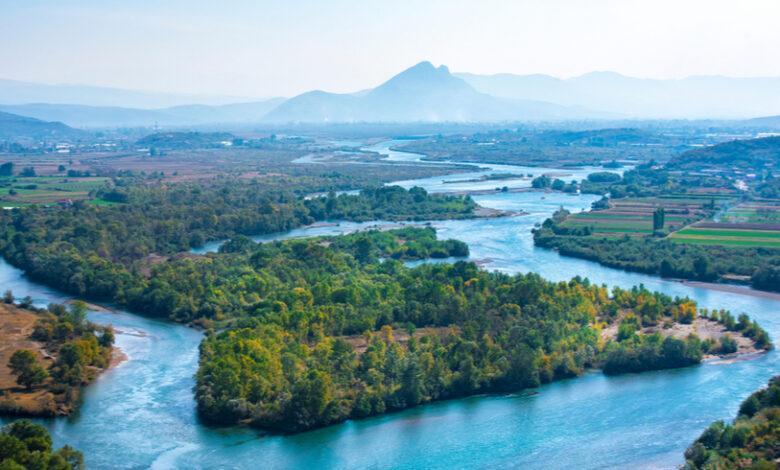
10 Importance of River Basins in Nigeria
Importance of River Basins in Nigeria – Nigeria, a nation with 1.9 million km2 of territory, has 12 significant river basins that are essential to its growth. These river basins provide essential resources including transportation, a source of hydroelectric power, flood management, and water for drinking, farming, and industrial usage. In addition, Nigeria’s river basins maintain a rich biodiversity and serve as home for a variety of aquatic creatures, animals, and plants. Nigeria created River Basin Development Authorities (RBDAs) in 1976, with each RDBA in charge of a distinct river basin, to govern and develop these river basins. In addition to other duties, the RBDAs are in charge of managing the supply of water for household and industrial use, hydroelectric power, and irrigation.Information Guide Nigeria
The river basins of Nigeria confront a number of difficulties, including pollution, overexploitation, climate change, and inadequate management, despite the fact that they significantly contribute to the country’s economy, environment, and way of life. For the benefit of both the current and future generations, it is vital to raise awareness of the significance of these river basins.
👉 Relocate to Canada Today!
Live, Study and Work in Canada. No Payment is Required! Hurry Now click here to Apply >> Immigrate to CanadaRead Also: 10 Importance of Small Scale Business in Nigeria
What is a River Basin?
A river basin is a region of land where water from rivers, streams, and precipitation flows into a specific river or a chain of rivers that ultimately empty into a lake or the ocean.Importance of River Basins
An Overview of Nigeria’s River Basins
Nigeria contains 12 significant river basins, totaling 1.9 million km2 of land. The economy, environment, and way of life of Nigeria depend on these river basins. They serve as a source of hydropower, flood control, transportation, and water for agricultural, drinking, and industrial purposes. The river basins are home to a wide variety of vegetation, animals, and fish. In order to administer and develop these river basins, Nigeria created River Basin Development Authorities (RBDAs) in 1976. The primary duties of the RBDAs, who are in charge of a particular river basin, include the supply of agricultural water, hydroelectric power, and water for home and industrial uses. For the sake of both the current and future generations, these river basins must be managed sustainably.
Nigerian River Basin Authorities
To oversee and develop Nigeria’s river basins, the River Basin Development Authorities (RBDAs) were founded in 1976. There are now 12 RBDAs in Nigeria, each in charge of a distinct river basin.100 Best University in Nigeria And Their School Fees
Some River Basins in Nigeria
They include:
- Niger-Benue River Basin
- Chad Basin
- Sokoto-Rima River Basin
- Upper Benue River Basin 50 Best University To Study Computer Science In Nigeria
- Anambra-Imo River Basin
- Ogun-Osun River Basin
- Cross River Basin
- Lake Chad Basin
Read Also: 10 Importance Of Special Education in Nigeria
Challenges of River Basins in Nigeria
Nigerian river basins suffer a number of difficulties, such as: NYSC Portal
-
Climate Change
Unpredictable weather patterns are producing regular floods and droughts in certain areas of Nigeria due to climate change. As a result, it is difficult to manage the water resources in river basins, and infrastructure like levees and dams suffer damage.
👉 Relocate to Canada Today!
Live, Study and Work in Canada. No Payment is Required! Hurry Now click here to Apply >> Immigrate to Canada2. Urbanization and Population Growth
Nigeria’s population is expanding quickly, which is causing more people to live in cities. Urban areas produce more waste and pollution, use more water for home, industrial, and commercial purposes, and place additional strain on river basins.JAMB Portal
3. Deforestation
Urbanization, logging, and farming have all contributed to significant deforestation in Nigeria. This has an impact on the water cycle in the river basins, which causes soil erosion, river siltation, and a decrease in the quantity of water available for drinking, farming, and wildlife.
Read Also: 10 Importance Of Tourism In Nigeria
4. Poor Infrastructure
Nigeria’s river basins lack the infrastructure necessary to successfully manage water resources. This includes a lack of appropriate levees, irrigation systems, and dams, which makes it difficult to control floods, store water for dry seasons, and transfer water to various locations.
5. River basins sometimes overlap many areas, states, and even nations, which may cause conflicts and provide management challenges. This makes it difficult to monitor and control water use, which causes disputes over who gets to use the water resources. Additionally, there are not enough efficient institutions in place to manage the river basins, which makes coordination and communication between parties difficult.JAMB Result
These issues have a big influence on how people live in and near river basins, and they may cause food shortages, evictions, and biodiversity loss. To manage the river basins sustainably for the benefit of both people and the environment, the Nigerian government and stakeholders must address these issues.
10 Importance of River Basins in Nigeria
-
Agriculture
Agriculture in Nigeria is dependent on river basins because they provide the water needed for irrigation and other agricultural processes. For instance, the Niger-Benue River Basin sustains more than 60% of the nation’s agricultural output.
Read Also: 10 Importance of Information Bill in Nigeria
2. Water supply
In Nigeria, millions of people depend on river basins as a major source of drinking water.
3. Hydroelectricity
A major source of electricity in Nigeria is hydropower, which is produced by river basins.
4. Biodiversity
River basins are home to a wide variety of animals, plants, and fish.
5. Transportation
River basins provide a vital route for transportation, particularly in regions with inadequate or nonexistent roadways.200 romantic love message for her
6. Flood control
River basins are essential for flood management because they lower the likelihood of property damage and fatalities during floods.
7. Tourism
River basins provide chances for travel, including fishing, sightseeing, and water sports.
8. Water for industrial uses, such as mining and manufacturing, is provided by river basins.
9. River basins are important in managing local temperature, which helps to lessen the consequences of climate change.
10. Economic development:
River basins are a key factor in fostering economic growth by giving people access to employment, money, and opportunities.
Read Also:10 Importance of Intergovernmental Relations In Nigeria
Conclusion
In Nigeria, river basins are important natural resources that sustain the country’s economy, environment, and way of life. They maintain a wealth of biodiversity and provide vital resources including transportation, hydroelectric power, and water. These river basins do, however, have a number of issues that need sustainable management techniques. 105 good morning messages
In order to manage and develop these river basins and ensure their effective usage and preservation, Nigeria’s River Basin Development Authorities (RBDAs) play a key role. For the sake of both current and future generations, it is vital to give sustainable management of these river basins top priority. Nigeria must implement ground-breaking policies that emphasize the protection and wise use of these essential resources.
Check JAMB RESULT
Check and Confirm: How much is Dollar to Naira








